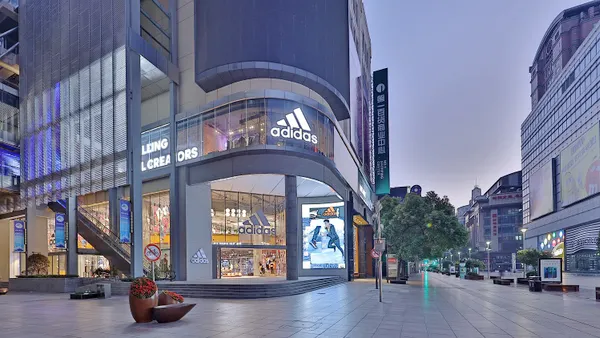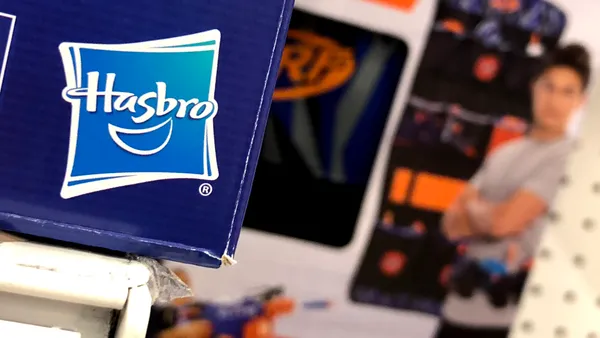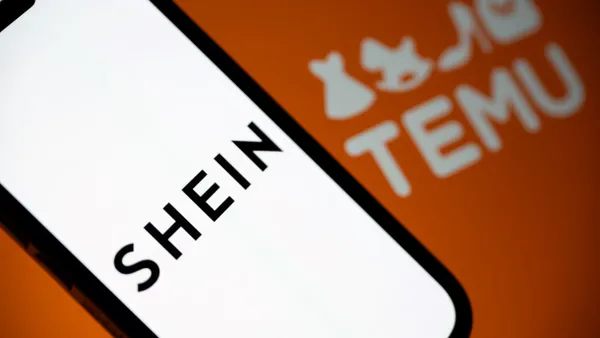Dive Brief:
-
Speaking Tuesday at Alibaba Group Holding Ltd.'s first investor day conference, executive chairman and founder Jack Ma said that many knockoffs available on the company’s marketplaces are of better quality than the authentic products they mimic, but pledged that the retailer would continue to crack down on sales of counterfeit goods across its platform.
-
Alibaba said Tuesday it expects revenues to grow 48% year over year in 2017, thanks in part to its acquisitions of Chinese video site Youku Tudou and Singapore-based e-commerce business Lazada. Excluding those acquisitions, revenue growth will be more than 36% year over year, compared to 33% growth last year, the company said.
-
Alibaba also expects to gross merchandise volume (GMV) to reach 6 trillion yuan ($912 billion) in fiscal 2020, nearly double the 3.09 trillion yuan reported in fiscal 2016, and that it will almost double its transaction volumes over that time.
Dive Insight:
In past quarters, Alibaba’s Chinese marketplace revenues have grown more quickly than its GMV, a sign that the retailer brings “more value to consumers and those who want to reach our consumers,” it said in materials emailed to Retail Dive.
That indicates that Alibaba’s value proposition to the brands and retailers participating in its marketplaces goes beyond sales to include brand building, customer acquisition and engagement, retail rollout planning, and productivity planning. “Simply, we are not a retail company,” Alibaba said.
Whatever Alibaba is, founder Jack Ma's comments Tuesday seem likely to further rankle brands that have been crying foul over sales of counterfeit goods on its sites. "The problem is the fake products today are of better quality and better price than the real names,” Ma said, according to a webcast of the meeting. “They are exactly the [same] factories, exactly the same raw materials, but they do not use the names.”
Washington, DC-based International AntiCounterfeiting Coalition (IACC) last month suspended Alibaba Group's membership after outcry from global brands and members over its inclusion. Gucci America, Michael Kors and Tiffany & Co. all left IACC after Alibaba joined, saying it was providing cover to the Chinese e-commerce giant’s marketplaces.
Ma was also scheduled to give the keynote address at the group’s spring conference this month, but Alibaba president Michael Evans took his place and attempted to assure the IACC that Alibaba is leveraging its scale and its data prowess to find and eliminate fakes from its marketplaces.
Alibaba Tuesday attempted to limit fallout from Ma’s remarks, saying, “This is simply my observation of the issues facing brands and OEMs. Counterfeiting is not a quality problem; counterfeiting is an intellectual property problem,” according to CNBC.













